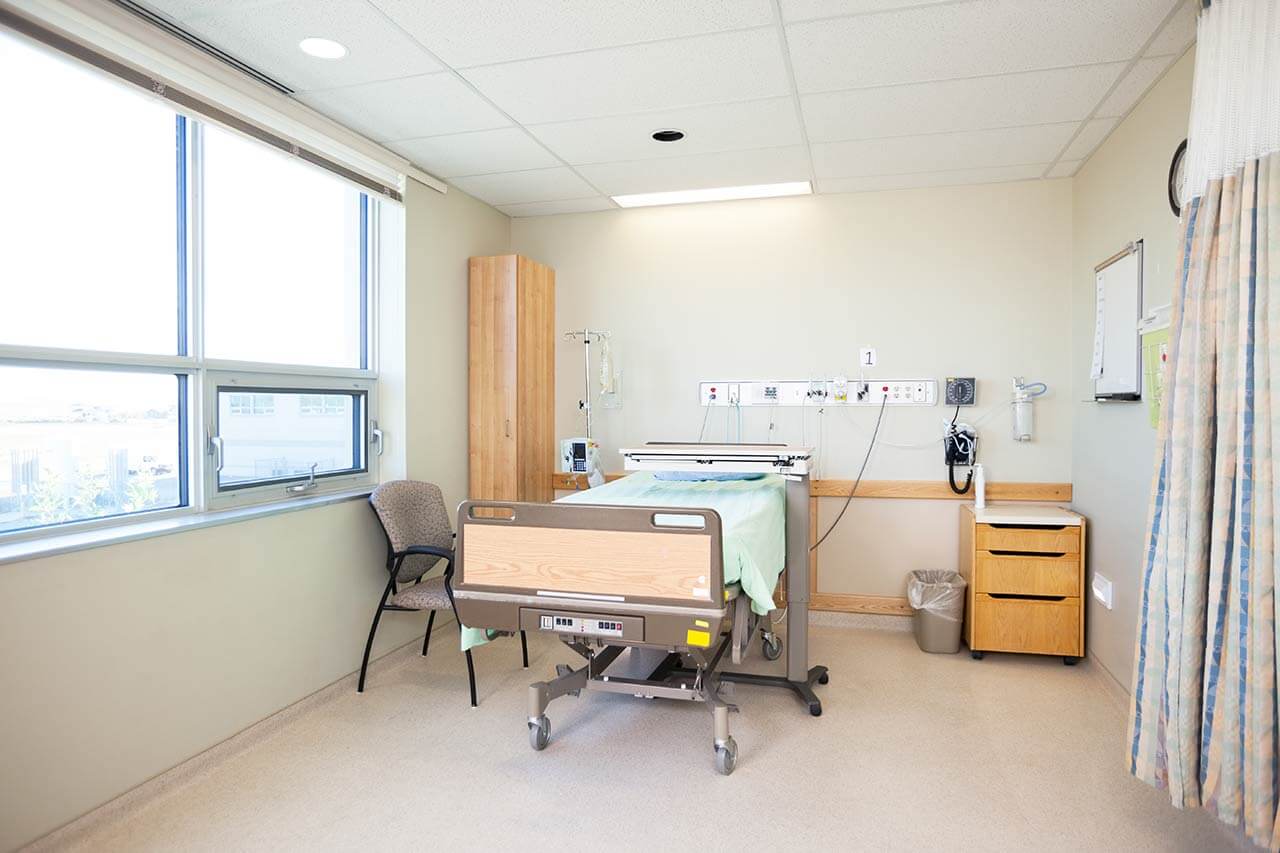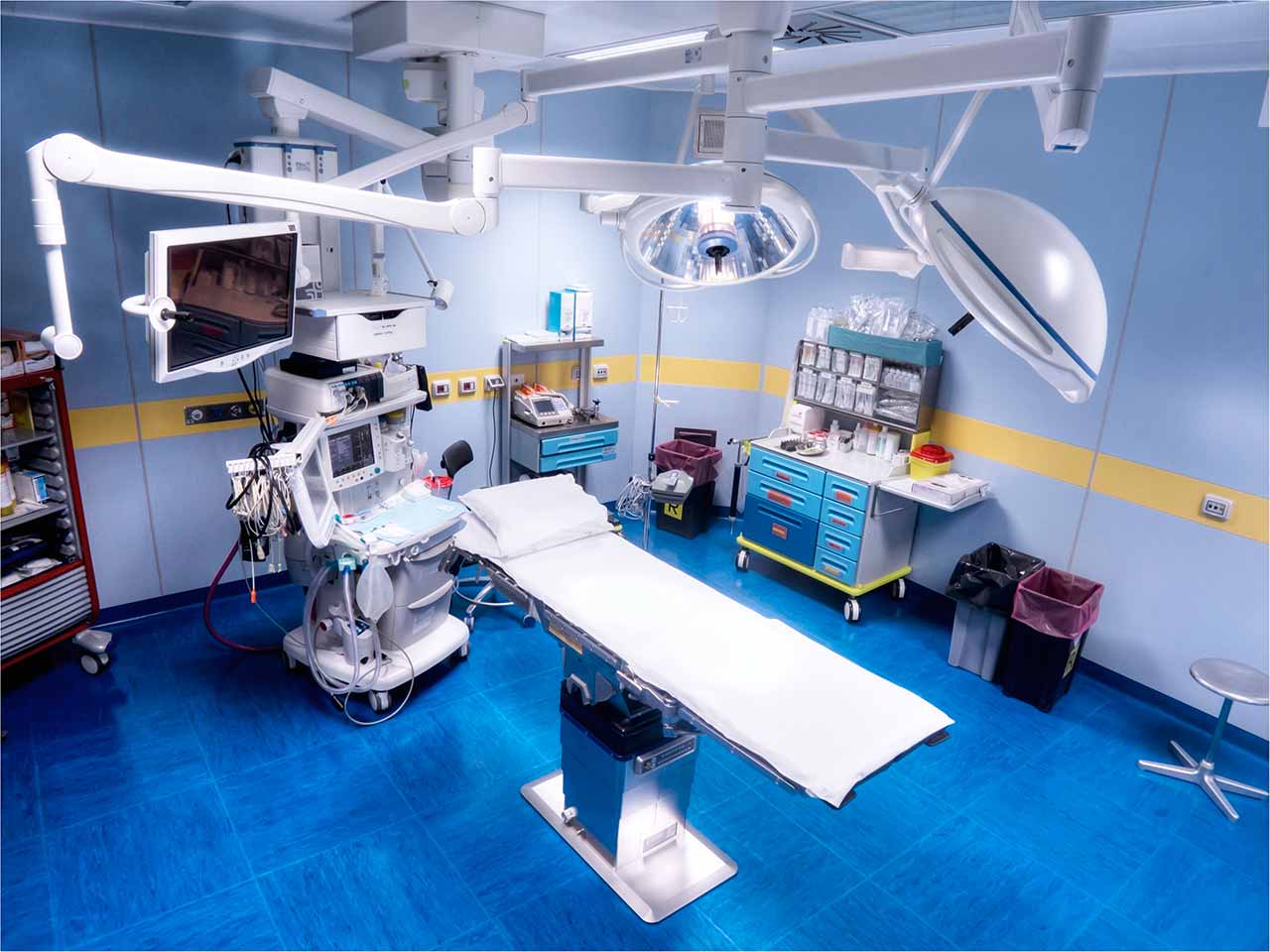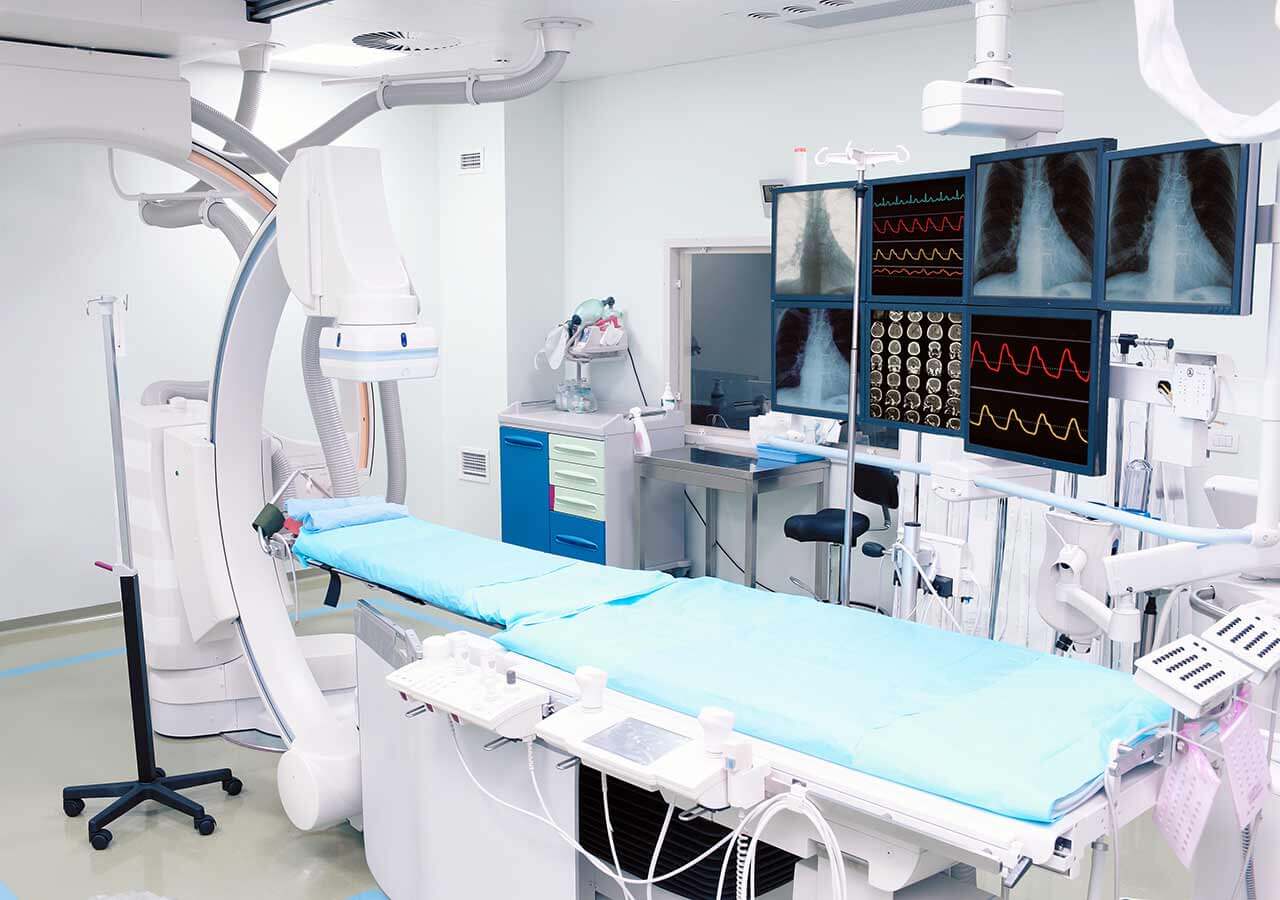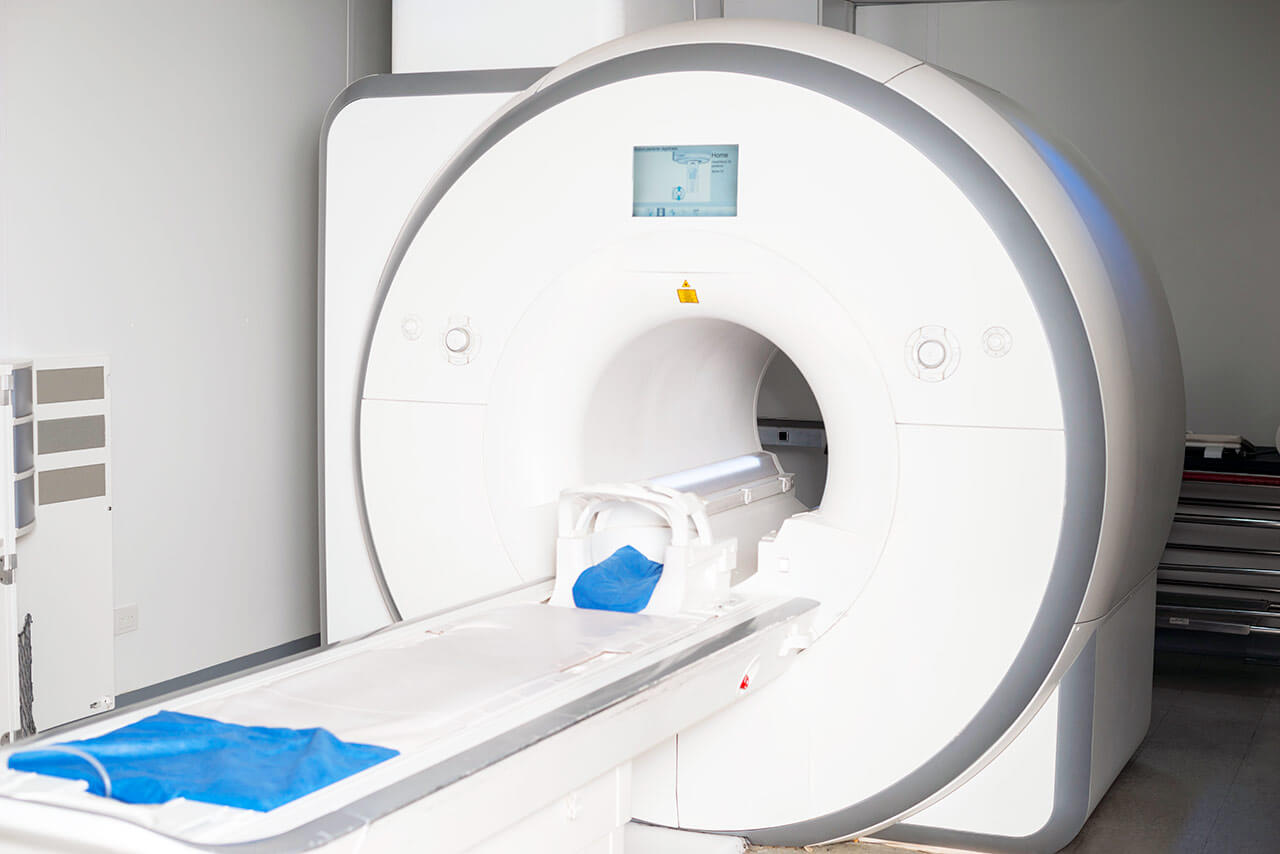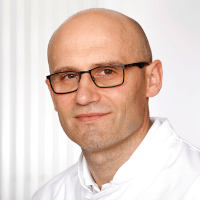
The program includes:
- Initial presentation at the clinic
- clinical history taking
- review of medical records
- general clinical examination
- extensive laboratory tests:
- complete blood count
- biochemical blood test
- inflammation markers (CRP, ESR)
- blood coagulation analysis (aPTT, PT, INR)
- bacteriological analysis, cultures for sterility
- serological analysis (PCR, IgG to Brucella abortus)
- nursing services
- treatment by chief physician and all leading experts
- explanation of individual treatment plan
- written statement
Required documents
- Medical records
Service
You may also book:
 BookingHealth Price from:
BookingHealth Price from:
About the department
The Department of Gastroenterology and Hepatology at the St. Anna Hospital Herne provides the full range of preventive, diagnostic and therapeutic services to patients with diseases of the gastrointestinal tract, liver and gallbladder. An important focus of work of the medical facility is on the treatment of stomach, colon and pancreatic cancers – the department has been certified by the German Cancer Society (DKG) in this field. The department's gastroenterologists cooperate closely with the specialists from the Department of General and Abdominal Surgery, Hepatobiliary Surgery, Endocrine Surgery and Hernia Surgery, so that patients receive comprehensive and most effective treatment. Medical care is provided on an inpatient and outpatient basis. The department has excellent options in the field of diagnostic and therapeutic endoscopy, which makes it possible to cure many gastroenterological diseases without open surgery. It is extremely important for the department's doctors to provide each patient with high-quality treatment, taking into account his individual needs and wishes. The department is headed by Dr. med. Viktor Rempel.
The department's gastroenterologists admit many patients with stomach pathologies. The doctors most often deal with gastric ulcers, polyps and stomach cancer. In case of the gastric ulcer, the patient develops defects in the mucous membrane of the organ. Untimely treatment or its complete absence can lead to irreversible pathological changes or perforation of the stomach wall. As a rule, the department's specialists select an effective drug therapy regimen that helps the patient to completely get rid of the pathology. In particularly complex cases, surgical treatment may be required. Gastric polyps are also common in the clinical practice of the medical facility. Endoscopic techniques are successfully used for the treatment of benign neoplasms: endoscopic mucosal resection and endoscopic submucosal dissection. These therapeutic procedures have been performed in the department for more than 20 years, so patients can expect the best results. If stomach cancer is diagnosed in the patient, the treatment is carried out by gastroenterologists and abdominal surgeons. Should oncology be diagnosed at the early stages, it is often possible to avoid open surgery and perform endoscopic treatment – endoscopic submucosal dissection. However, in the advanced stages of gastric cancer, the mainstay of therapy is a surgical intervention. In addition, chemotherapy, radiation therapy and other conservative treatment methods play an important role in the therapeutic process.
The department also has rich and successful experience in the treatment of bowel diseases. The most common pathologies include Crohn's disease, ulcerative colitis, bowel obstruction, bleeding, intestinal infections, benign neoplasms, and bowel cancer. To combat the above mentioned pathologies, doctors of the medical facility use various drug therapy regimens and endoscopic procedures (colonoscopy). Whenever required, abdominal surgeons are involved in the therapeutic process. They perform either minimally invasive or open surgery.
Hepatology is also an integral part of the department's clinical activities. The specialists in this field provide diagnostics and treatment of liver diseases, including liver cysts, hepatitis A, B, C, D and E, metabolic liver diseases, cirrhosis, liver hemangiomas and adenomas, as well as liver cancer. Should liver disease be suspected, the department's doctors carry out comprehensive diagnostics: laboratory tests, ultrasound examination, computed tomography, magnetic resonance imaging, biopsy. The required complex of diagnostic procedures is determined individually for each patient. The competence of the department's specialists includes drug therapy for liver pathologies, and surgical procedures are performed by highly specialized surgeons.
The department's key clinical areas include:
- Gastroenterology
- Diagnostics and treatment of stomach diseases
- Gastric ulcer
- Gastric polyps
- Gastric cancer
- Diagnostics and treatment of bowel diseases
- Inflammatory bowel disease (Crohn's disease and ulcerative colitis)
- Bowel obstruction
- Gastrointestinal bleeding
- Infectious bowel lesions
- Diverticular disease
- Bowel polyps
- Bowel cancer
- Diagnostics and treatment of esophageal diseases
- Esophageal diverticula
- Achalasia cardia
- Gastroesophageal reflux disease
- Benign esophageal tumors
- Esophageal cancer
- Diagnostics and treatment of pancreatic diseases
- Acute and chronic pancreatitis
- Pancreas divisum
- Pancreatic cancer
- Diagnostics and treatment of stomach diseases
- Hepatology
- Diagnostics and treatment of liver diseases
- Liver cysts
- Inflammatory liver diseases
- Viral hepatitis A, B, C, D and E
- Autoimmune liver diseases (autoimmune hepatitis, primary biliary cirrhosis, and primary sclerosing cholangitis)
- Non-alcoholic fatty liver disease
- Metabolic liver disorders
- Cirrhosis
- Benign liver tumors: hemangiomas, adenomas, focal nodular hyperplasia
- Liver cancer
- Diagnostics and treatment of gallbladder diseases
- Gallstone disease
- Cholecystitis
- Benign gallbladder tumors
- Gallbladder cancer
- Diagnostics and treatment of liver diseases
- Other medical services
Curriculum vitae
Dr. med. Viktor Rempel has been the Head of the Department of Gastroenterology and Hepatology at the St. Anna Hospital Herne since 2018. Prior to that, the specialist worked in the same department as a Senior Physician. Dr. Rempel received his medical education at the University of Muenster and the training for board certification took place in Essen and Bottrop. In 2005, the doctor began working at the St. Anna Hospital Herne. In 2015, the specialist changed to the Asklepios Hospital Barmbek, Hamburg, where he worked for three years.
Photo of the doctor: (c) St. Anna Hospital Herne
About hospital
According to the famous Focus magazine, the St. Anna Hospital Herne ranks among the best medical facilities in North Rhine-Westphalia!
The hospital first opened its doors to patients on September 27, 1901, and therefore it is rightfully proud of its long history and successful treatment results. Initially, the hospital had only 40 beds, and today it offers 380 beds for the accommodation of inpatients. The patients benefit from perfectly equipped diagnostic rooms, operating rooms and treatment rooms, in which therapeutic procedures and surgical interventions of any severity are performed.
The hospital has over 1,400 employees. The doctors of the medical facility annually admit about 32,100 inpatients, and more than 56,300 outpatients receive high-quality medical care. The specialists provide services to patients from their region and other federal states of Germany, as well as to patients from other countries of the world. The medical team of the hospital strives to provide each patient with optimal treatment in the most comfortable conditions and in a friendly environment.
The hospital specializes in the following medical fields: orthopedics and traumatology, general and abdominal surgery, internal medicine, gastroenterology, oncology, gynecology, obstetrics and mammology. Each of the medical directions is represented by a specially trained team of doctors who possess deep knowledge and rich clinical experience in their area of specialization. It should be noted that the Department of Orthopedics and Traumatology is one of the largest and best in the whole of Germany. Other departments of the hospital also demonstrate excellent results, which are confirmed by various quality certificates, including certificates of the German Cancer Society, the German Hernia Society, and the German Spine Society.
Photo: (с) depositphotos
Accommodation in hospital
Patients rooms
The patients of the St. Anna Hospital Herne are offered accommodation in single rooms and rooms designed for several people. All rooms are bright, have a modern design and all the necessary amenities. The furnishings of the standard patient room include an automatically adjustable bed, a bedside table with a locker, a wardrobe, a table and chairs, a TV, and a telephone. Each patient room has an ensuite bathroom with shower and toilet.
Patients can also choose to stay in enhanced comfort rooms. These rooms provide patients with a comfortable bed, a refrigerator, a safe and a TV with a DVD player. If desired, one can also connect to Wi-Fi. The patient can also independently adjust the brightness of the lighting in the patient room. In addition, the enhanced comfort room has a glazed balcony with a seating area.
Meals and Menus
The patients of the hospital are offered tasty and healthy three meals a day. The patients have a choice of buffet meals for breakfast and dinner, and there is a choice of several set menus for lunch. Patients are offered tea, coffee, mineral water and juices at any time.
If for some reason you do not eat all foods, you will be offered an individual menu. Please inform the medical staff about your food preferences prior to treatment.
Further details
Standard rooms include:
Television
You can listen to 4 radio programs and watch 30 television programs through the headphones at the patient's bed.
Religion
Religious services are available upon request.
Accompanying person
Your accompanying person may stay with you in your patient room or at the hotel of your choice during the inpatient program.
Hotel
You may stay at the hotel of your choice during the outpatient program. Our managers will support you for selecting the best option.
